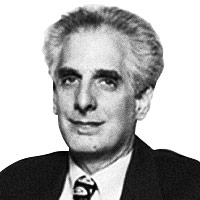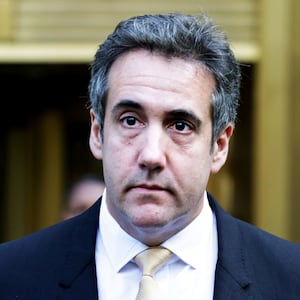Government policy probably bars prosecutors from indicting President Donald Trump while he remains in office, but they may free to bring charges against Trump’s campaign and his companies. Following Wednesday’s news from federal prosecutors in Manhattan, it increasingly looks like that just might happen.
After Trump’s ex-attorney Michael Cohen was sentenced to three years behind bars for financial, tax, and campaign finance violations, federal prosecutors announced that they have entered into a non-prosecution agreement with American Media Inc. (the parent company of the National Enquirer). AMI admitted to making the payment to one of Trump’s purported mistresses “in concert” with the Trump campaign, as part of the same scheme to evade campaign finance laws to which Cohen pleaded guilty.
Based on the Cohen plea and the AMI agreement, it appears increasingly likely that federal prosecutors have sufficient basis to charge the Trump Campaign with criminal campaign finance violations; and, prosecutors could well expressly ground such corporate criminal charges on the knowledge and intentions of Trump, as well as Cohen.
Furthermore, this may be only the first of several instances in which one or more Trump-owned or controlled companies could face criminal liability based upon the actions or corrupt intentions of the president.
While some legal scholars have compellingly argued that the Constitution permits the indictment of Trump before he leaves office, that’s effectively foreclosed by a long-standing Department of Justice policy.
It is, however, well established that a company is generally treated as a “person” under federal law, and therefore may be charged with liability for many crimes. Furthermore, federal courts have long recognized that, as a general matter, a company can be held responsible for offenses committed by the company’s officers and employees, or agents; acting within the scope of their employment; and with the purpose of benefiting the company. These principles could well spell trouble for Trump.
In recent filings, prosecutors stated that Cohen, “coordinated” with Trump to violate campaign finance laws in connection with the hush money payments. Also, on Wednesday, prosecutors released their agreement with AMI, in which that company admitted to making the Karen McDougal payment “in concert” with the Trump campaign.
As federal prosecutors also recently disclosed in connection with Cohen’s plea and sentencing, Cohen—this time apparently acting on behalf of one or more Trump companies—was pursuing a deal to build a Trump Tower complex in Moscow in the midst of the presidential campaign, apparently with Trump’s knowledge and assent.
To date, the sole criminal charge arising from these events is one Cohen pleaded guilty to, for lying to Congress about the Moscow project he was pursuing for Trump. But it may well be that prosecutors have evidence that deal was part of a broader criminal conspiracy between Trump, his campaign, and the Russian government. Indeed, during Cohen’s plea hearing, a prosecutor from Robert Mueller’s office informed the court that Cohen has provided their office with “wide ranging and helpful” information related to Mueller’s investigation, and therefore likely concerning potential coordination between Russia and the Trump campaign. Additionally, Allen Weisselberg, the Trump Organization’s long-standing chief financial officer has reportedly been cooperating with federal prosecutors; and the Manhattan district attorney’s office reportedly began considering indicting one or more Trump companies months ago.
Accordingly, it is possible that Trump’s business entities, as well as the Trump campaign, could find themselves facing criminal charges for conduct relating to Trump’s 2016 presidential campaign, and that those charges could be based in substantial part on the knowledge or intent of the companies’ owner: the president.
An indictment of the campaign or Trump businesses could create unusual, and unwelcome, issues for the president, apart from the monetary and other penalties that could be assessed against such entities following a conviction.
For example, Trump could well be a significant witness in any criminal case relating to a company he owns or his campaign organization. If he was called to the stand by the government (which might or might not occur, depending on the prosecutors’ interpretation of applicable policies and their trial strategy), Trump might be faced with the excruciating problem of deciding whether to be the first sitting president to declare an intention to invoke his rights under the Fifth Amendment in a bid to avoid taking the stand. Furthermore, Trump might well be a critical witness for the defense, and could therefore face enormous pressure to take the stand voluntarily in order to lessen the risk that his companies would be convicted.
Whether or not Trump is actually a witness in the criminal trial of one of his companies or of his campaign, the public will likely perceive any such proceeding as a trial of Trump himself, and might likewise view a conviction as effectively amounting to a finding of the president’s guilt.
After the recent revelations that he was actively pursuing the Moscow deal as late as June 2016, Trump said: “I was running my business while I was campaigning. There was a good chance that I wouldn’t have won... and why should I lose lots of opportunities?” What Trump apparently failed to consider was that, while amalgamating a business enterprise with a presidential campaign might have provided “lots of opportunities,” it also posed the grave risk of creating some gnarly legal problems as well.







